Blockchain Weekly Front Page: Blockchain is changing the Gaming Industry
28/09/2018
Blockchain is a real game-changer and is already disrupting a number of industries. Finance, healthcare, real estate, government, energy, art are a few that are already integrating blockchain into their operations. The real disruption that blockchain brings, is the way it establishes trust, through collaboration and code, rather than a central authority.
Gaming is another industry that is joining the blockchain express, with several projects that are already picking up steam. The union of gaming and blockchain is inevitable and the impact of this evolution is set to be just as significant as the emergence of online gaming a decade ago. Blockchain and tokenization are enabling video games to offer users more value and rights to their in-game digital assets.
On DappRadar.com, a platform that lists decentralized applications, we see that gaming is in the top 3 most popular categories, right up there with exchanges and gambling. More than 350 games have been developed, and while only 100 are currently active, new ones are released every week.
The problem that plagues gaming is the inability to prove the provenance of specific virtual items, leading to fraud. Smart contracts allow users to be confident that they are receiving authentic items since they are tethered to the blockchain. Exchanging such in-game items has become a lucrative industry, estimated to be worth $50 billion, that is expected to increase in size rapidly.
Most blockchain games store your items on blockchain, tying them to your Ethereum wallet and making them permanently your own. The first generation of blockchain games was solely based on this principle and they were focused on collecting unique assets and trading them, for fun, profit, or both. The authenticity of individual virtual items is guaranteed using smart contract standards such as the ERC-721 non-fungible token standard and the newer ERC-1155 implementation.
CryptoKitties, one of the most popular blockchain-based games, raised 12 million in a round led by Union Square Ventures and Andreessen Horowitz and was the first game that started this trend.
Game developers are designing new methods to run online games securely, privately, and efficiently using blockchain technology. Players can form teams in new and existing MMORPGs, record their accomplishments securely and permanently, pay and exchange in-game resources or share rewards, like tokens or in-game currency.
One of the projects moving in this direction is the team behind the Angry Birds development platform. Earlier this month, Cocos-BCX raised $40 Million for a blockchain Gaming Network, to help take gaming to the next level with crypto. Their vision is to become an end-to-end platform, where more than one million currently active game developers can build, deploy, operate, and manage games across multiple blockchains. In a blog post, the company suggested that blockchain technology will help in widening the relationship between developers and gamers, as the technology creates a more transparent community around game mechanics.
Today, the gaming industry is thriving, with two billion people and projected revenue growing from $116 billion in 2017 to $143 billion by 2020.
Ubisoft, a gaming manufacturer, is exploring how blockchain games can help players, as it looks beyond gaming for future possibilities. For gaming industry, blockchain is a logical next step in this evolution, since players have long been familiar with virtual currency and fungible items in the gaming world.
The growth of blockchain gaming apps is primarily driven by the industry’s progressive attitude towards new technologies. But that is not the only reason. For many small startups in the gaming industry, blockchain is allowing them to sell items and raise money fairly quickly. It’s bringing the player community into the development because they’ve put skin in the game essentially. If the game is successful, they’re able to take those items they purchase and turn around and sell them to other players who missed out on the initial game offering.
But blockchain games, still have some important issues to resolve, specifically transaction time and fees. On Ethereum, the most common platform used for gaming apps, to buy a $1 item could cost you $2 in gas fees, and 10 to 15 minutes in waiting to get that actual item. Developers are already exploring other blockchains that can help address these issues. Currently, nChain, a global leader in research and development of blockchain technologies, is already looking at ways to allow for the migration of Ethereum-based tokens to BCH.
While EOSBet Dice was hacked for roughly $220,000, the online gambling industry was estimated to be worth $40 billion in 2015 and is projected to keep growing. This has attracted a lot of cryptocurrency and blockchain startups to the space, that are trying to disrupt it. It turns out that gambling, not buying crypto kittens, is one of the most popular applications on the blockchain. According to Bloomberg, over a 24-hour period the Fomo3D app attracted more than five times the number of users than CryptoKitties.
Casinos are all about the trust between players and the house, and that trust is very often abused to the fullest extent. The integration of blockchain technology in the gambling industry will resolve concerns and problems that the online gambling community has been facing, that have to do with gaming results and intentionally hidden winnings and payouts to avoid public scrutiny.
We’re still in the very early days of the technology, but blockchain will have a massive impact on all aspects of the gaming and gambling worlds. Tokenization of virtual goods, improving betting as well as payments and are just but a tip of the iceberg. As the Blockchain technology evolves, it will revolutionize these sectors even further.
Finyear – Daily News
Le quotidien Finyear
– Sa newsletter quotidienne :
Recevez chaque matin par mail la newsletter Finyear, une sélection quotidienne des meilleures infos et expertises en Finance innovation, Finance Digitale, Cryptofinance.
– Sa lettre mensuelle Le Trésorier



